‘He was my big, strong brother’: Inside one Iowa family’s anguish amid a rise in farmer suicides
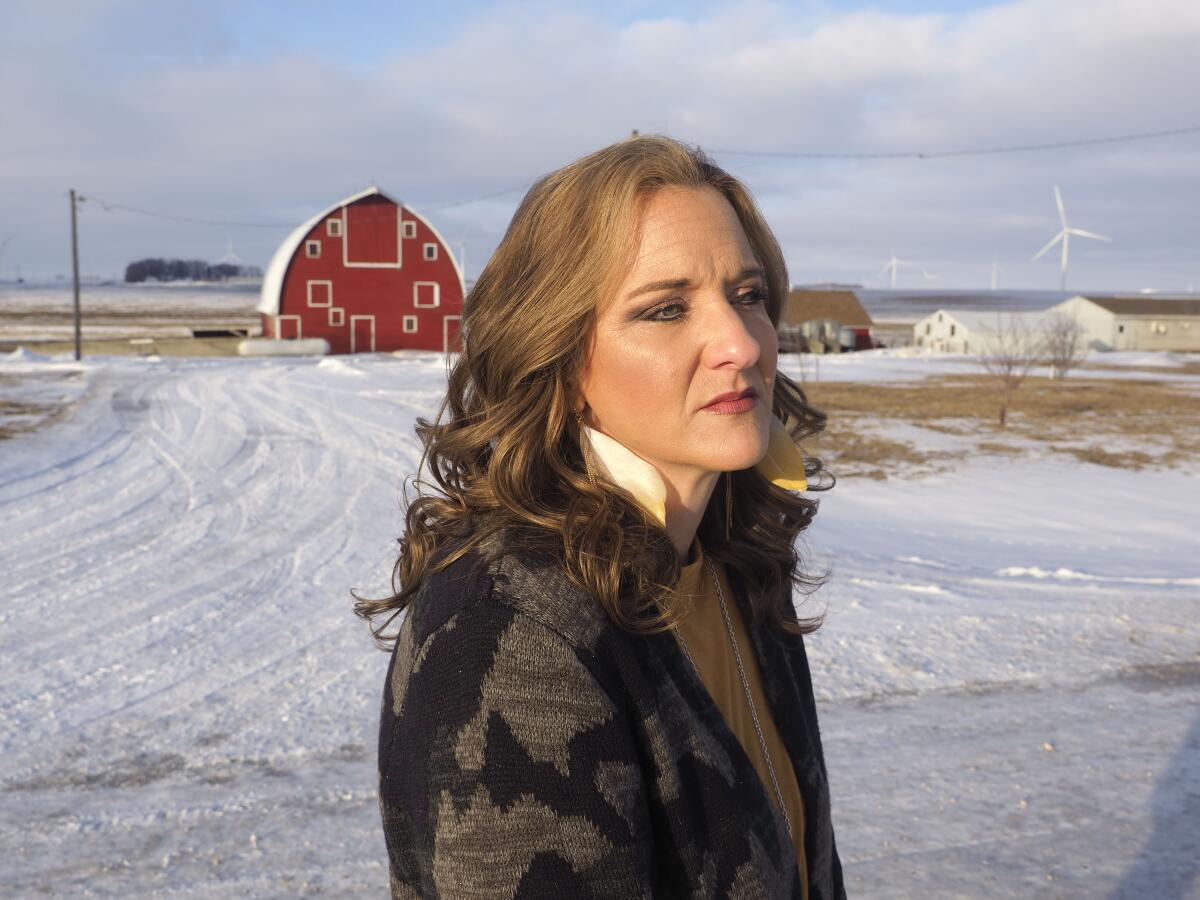
- Share via
MARCUS, Iowa — On a mild spring day, Troy Sand took his middle son, Connor, out for lunch and to shop for a new laptop for college. Then he returned home, wrapped a single-shot shotgun in a rug, drove to his girlfriend’s house in nearby Cherokee, walked into the backyard and shot himself in the head.
Sand was 51. His death devastated his large, close-knit family and shattered this tiny community of fewer than 1,200 people in northwestern Iowa. His death also represented a growing manifestation of despair in rural America — farmers taking their own lives.
“When you have a suicide in your family, that person’s pain ends, but that pain gets put on everybody that’s left behind,” said Jill Vrieze, Sand’s younger sister.
American suicide rates have grown in recent years to levels unseen since World War II. The exact number of farmer suicides is difficult to pin down, in part because they are often reported as accidental deaths. However, experts who work in mental health, agriculture and rural communities all say they have seen a substantial increase.
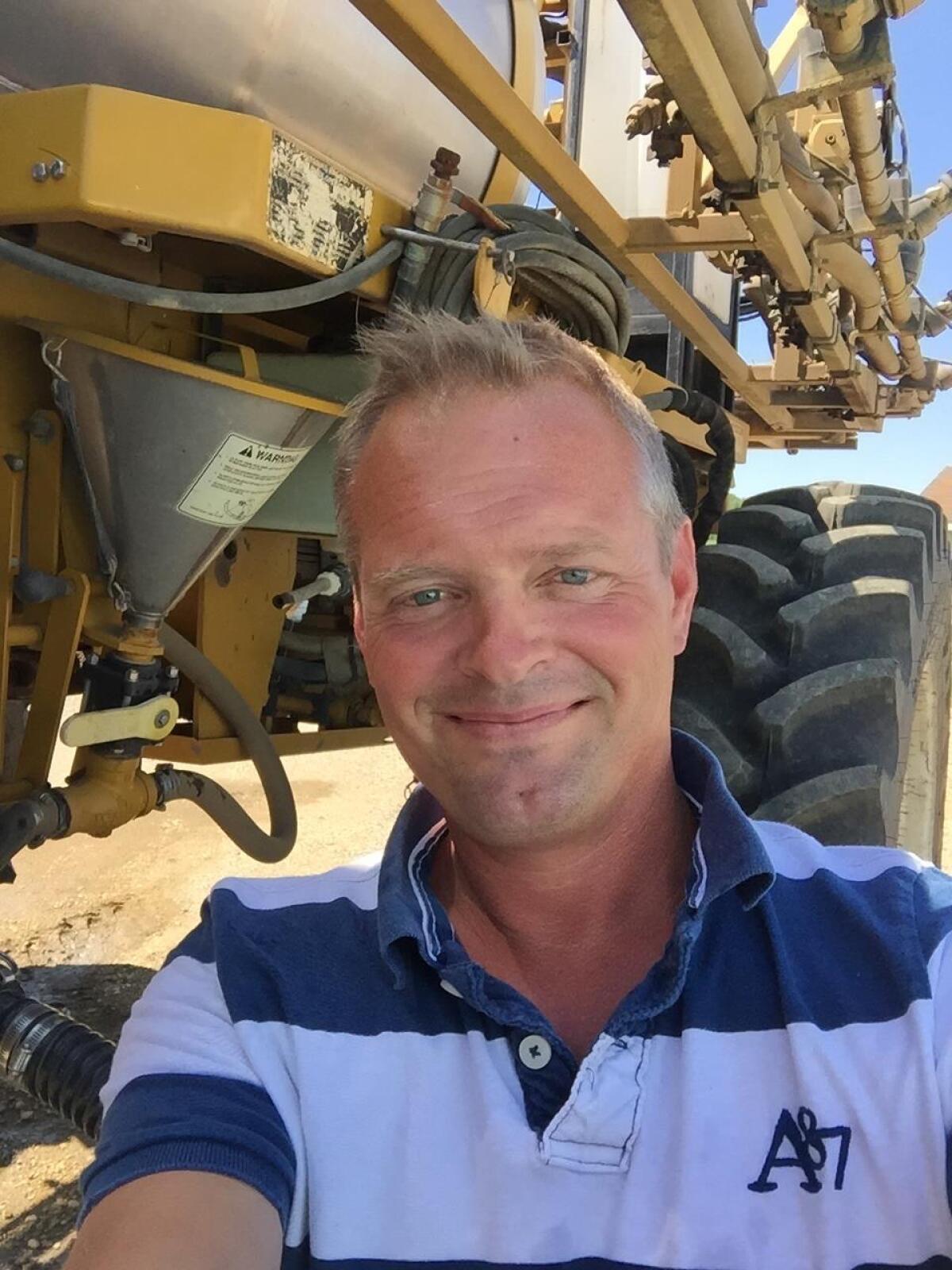
“Farmers tend to be pretty taciturn, so they suffer in silence. Until they don’t,” said Peggy Huppert, the executive director of the National Alliance on Mental Illness’ Iowa chapter, who worries that the farmer suicide rate could soon approach that of the farm crisis in the 1980s.
As the presidential campaign barreled through Iowa in advance of the state’s caucuses, candidates including Sens. Bernie Sanders, Amy Klobuchar and Cory Booker (prior to dropping out) raised the problem as the end result of hopelessness in rural regions and unjust economic policies.
“For rural working-class people, life expectancy is going down,” Sanders said in December in Iowa Falls. “Doctors call it the diseases of despair. That means when people feel hopeless … they turn to alcohol, they turn to drugs, and increasingly in rural America, people turn to suicide.”
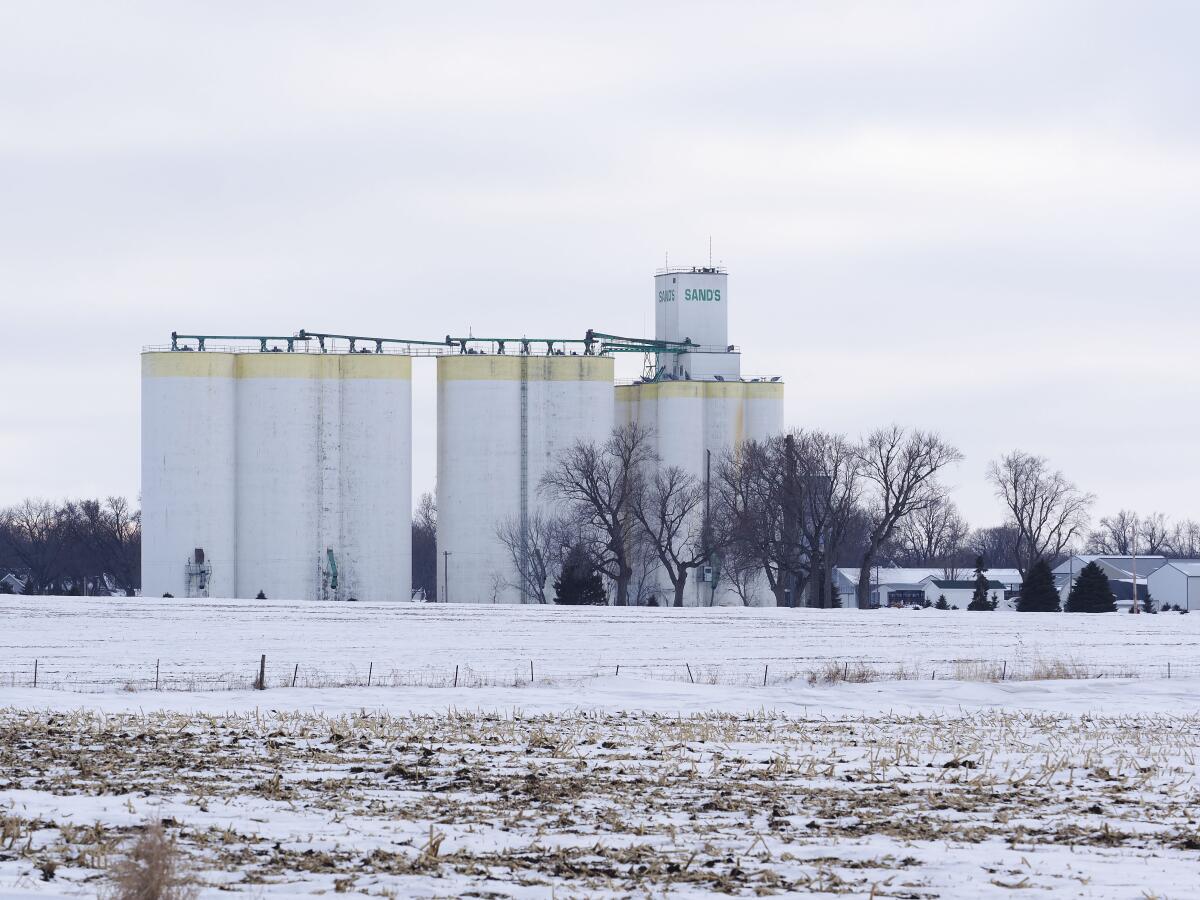
Not all suicides, of course, are the result of economic problems. In Sand’s case, as in many, the causes appear to be more complex and run much deeper.
Sand’s family moved to the region in 1885 and bought its first farm the following year. The family is prominent in northwestern Iowa. It paved Marcus’ first roads. A grain elevator that is among the tallest landmarks in town is stenciled with the family surname, a remnant of a family business sold two years ago.
As Vrieze drives through the town’s icy streets, she points to houses belonging to her late brother, a younger brother, an aunt and her late grandmother before stopping at her parents’ home.
“I have relatives on just about every street,” she said. “Your neighbors know everything you do. Everybody watches out for everybody.”
But the nurse noted that there is a stigma in rural communities when it comes to speaking about mental health.
“When you’re raised in a small community, you’re not supposed to talk about these things. Everyone’s hush-hush,” she said.
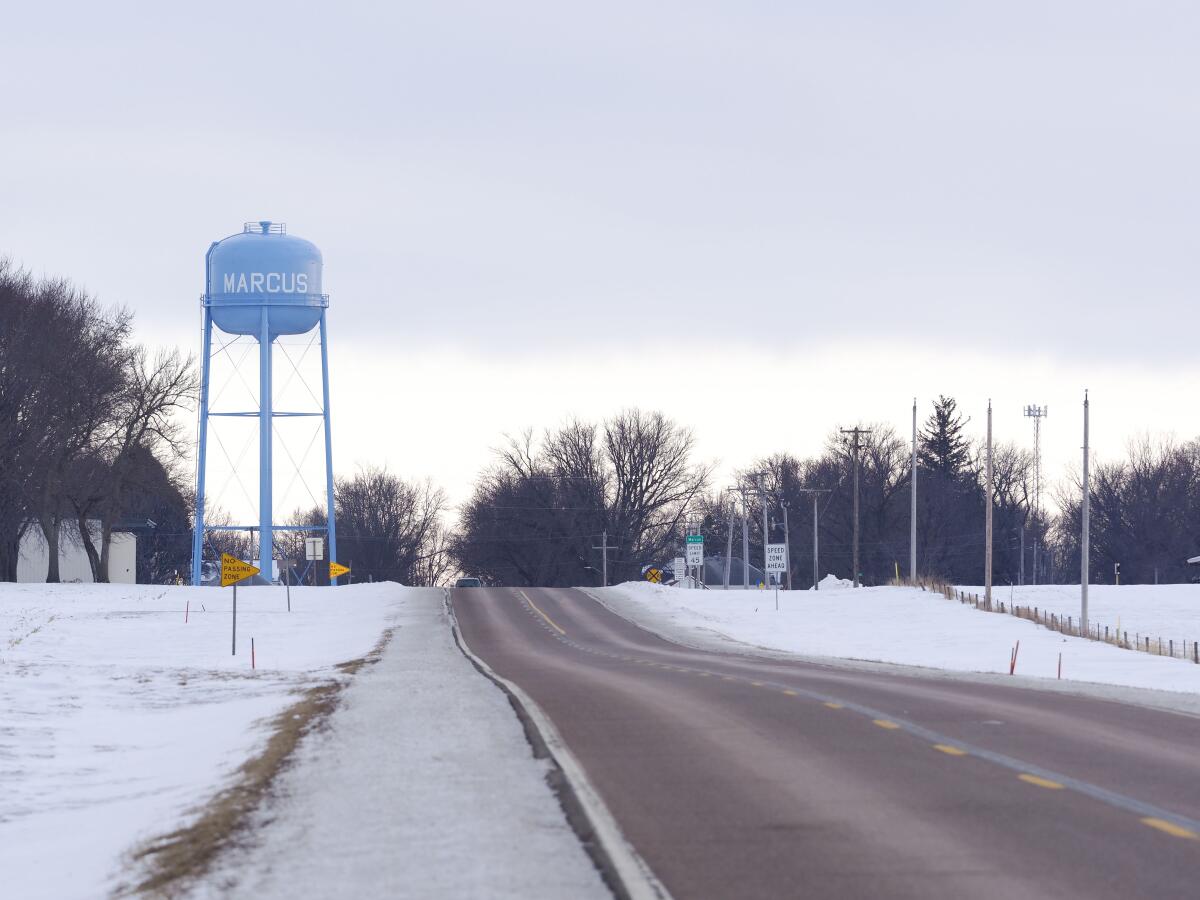
Suicides can rarely be blamed on a single cause. But farmers have long grappled with a number of exacerbating factors: uncertainty over weather, commodity prices, the abundance of their harvest. In recent years, they have faced growing pressure from agribusiness consolidation, biblical levels of flooding and steep tariffs because of the trade war with China.
Farm bankruptcy filings across the country in 2019 were up 24% from the previous year, and farm debt hit a record high of $416 billion, according to the American Farm Bureau Federation. Farmers also typically spend most of the day by themselves, isolated in rural areas where there is easy access to guns but little access to mental health services.
According to the U.S. Health Resources and Services Administration, 86 of Iowa’s 99 counties do not have an adequate number of mental health professionals.
“It is just a crying need that somehow we seem to be unable to bring to the forefront,” said Patty Judge, Iowa’s former lieutenant governor and agriculture secretary.
There are some modest efforts at reform.
The Iowa Legislature is expected to consider increasing funding for mental health services. Dairy farmers in eastern Iowa received milk checks last year with a suicide-prevention hotline number printed on it. Iowa State University Extension recently held half-hour discussions about suicide prevention after each of 90 meetings around the state about the new federal farm bill.
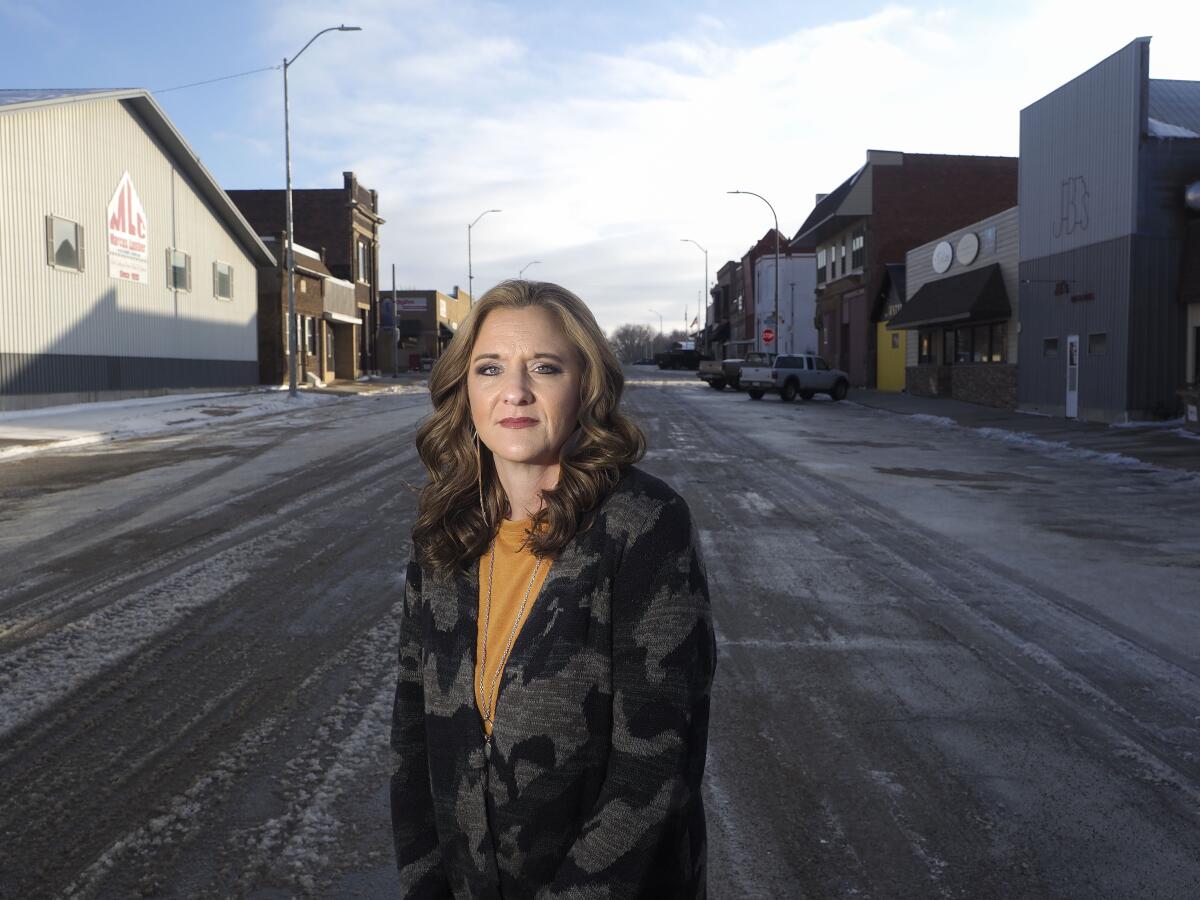
Mental illness previously appeared in the Sand family — one of Troy’s father’s uncles died by suicide, as well as two of his father’s cousins. Vrieze believes her brother struggled with depression on and off throughout his life.
“He was pretty good at hiding it,” she said. “Troy was either really happy, laughing, being goofy, or he had a big personality. He could also be inappropriate and obnoxious sometimes.”
Troy was the second oldest of six siblings. As a teen, he hunted squirrels and rabbits that ended up in the Crock-Pot, and caught snapping turtles with shells the size of truck hubcaps that could be broken down into multiple cuts of meat. Troy would take Vrieze, 12 years his junior, fishing at a cattle water tank that had been stocked with catfish and mullet.
Tall and handsome, Troy loved the outdoors, taking after their father, John, who left school in 10th grade to work on the family farm.
Now 75, John Sand’s once-sturdy frame is bent from decades toiling on the land from dawn to dusk, or later.
“My body’s pretty well worn out. My doctor always said, ‘You work too hard, you ruined your body, it’s all shot,’” Sand said. “I said, ‘I’ve never worked a day in my life.’ I said, ‘When you’re having so much fun, how can you call that work?’”
Their family farms 2,200 acres of corn and soybeans, and raises hogs, chickens and turkeys. On a recent, bitter-cold day, Sand’s eyes grew damp as he noted that three of his sons once helped him tend the vast expanses of snow-covered fields but now he was down to two.
Troy started helping out on the farm as a teenager and then returned full-time in his 20s, feeding the hogs, driving the combine, spraying the crops. He struggled in recent years, losing money because of falling crop prices and taking loans from his father to care for his sons.
Troy’s family doesn’t believe that the financial issues were the reason he killed himself. But it was one more stress for someone with depression and long-standing issues of abandonment. Troy’s mother left the family while he was a child; his high school sweetheart with whom he had daughter Toni moved to the East Coast; and then the wife with whom he had Cole, Connor and Caden divorced him.
“I think he felt like he was never enough for anybody, to keep them to stay,” said Vrieze, who is Troy’s half-sister. (They share the same father.)
His boys were Troy’s greatest passion. He was the loudest fan in the stands, cheering them during motocross meets and hockey games, and took them to watch the St. Louis Blues, their favorite professional hockey team.
Troy would stop by their grandmother’s home to make coffee and eggs before work. He would roast a whole hog for friends on weekends or make calico beans and pecan pies for enormous family gatherings. (They had nearly three-dozen first cousins on their father’s side alone.) Through it all, he was a gregarious presence, the life of the party, always telling jokes, sometimes bawdy.
But some days, he would call Vrieze and tell her that he was depressed, or that he had stopped taking his depression medication because of the side effects — weight gain, erectile dysfunction, just not feeling like himself. She urged him to persist, and never imagined that he would consider taking his own life.
So when her mom called to say that he had shot himself in May 2018, Vrieze couldn’t believe it and hung up on her.
“I just thought she was lying because I never, ever in a million years would have believed that Troy would have ever done that, because when he had friends that did this, he was always like, ‘Why would somebody do that? It’s selfish,’” she said. “For as much trouble that he had with relationships or his life and the issues he dealt with, he always seemed like he was such a strong person. He was my big, strong brother.”
The next hours, days and weeks were a blur. At the hospital, Vrieze made sure her brother’s skin, bones and tissues were donated so she could tell his sons that some good could come from this tragedy. Returning to Marcus, she remembers seeing Troy’s sons’ classmates gathered outside their home, weeping and hugging, a show of support for her nephews.
Crisis counselors showed up the next morning, because Vrieze knew to contact a behavioral health center run by her sister-in-law. In coming weeks, more than two dozen neighboring farmers showed up to tend to their farm and spray insecticides on the crops as the family holed up inside their ancestral home, consumed by grief.
Vrieze threw herself into taking care of Troy’s sons. Each dealt with their father’s death differently. Connor, who spent the day with his father the day he killed himself, wrote rap songs:
“Angel in Disguise” starts with his father’s voicemail message before the 20-year-old college student expresses disbelief over how much his life changed in one night.
“You don’t gotta go and suicide / If you do, in the sky you’ll realize/How many people carry tears in their eyes / Wish you could take it back, angel in disguise.”
“I’ve been thinking about you every day and night / I can’t wait for the day that I take flight / When I see you in my sight, I’ll know you alright / That’s the day I’m going to feel alright.”
Vrieze doesn’t know when she will ever feel all right. She still thinks about Troy every day, but some days are harder than others, such as when her youngest son, Troy’s godson, realized he wouldn’t be there for his confirmation. Or when she hears about another suicide (there have been at least two already this year in nearby Le Mars, where Vrieze lives).
“It’s like, boom, back to that horrible gut-punched feeling that you had the minute we found out that this happened,” she said. “I don’t know that it’s ever something that you ever get over. I think you have to learn to live a new life.”
Troy’s ashes are in the credenza in her father’s dining room, next to a picture of him beaming and hoisting a beer.
Her father plans to have a share of the ashes sewn into a teddy bear that will be buried in his coffin. Vrieze plans to make hers into a glass sculpture of a fish, a reminder of their carefree childhood days.
More to Read
Sign up for Essential California
The most important California stories and recommendations in your inbox every morning.
You may occasionally receive promotional content from the Los Angeles Times.











